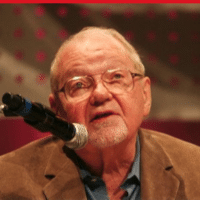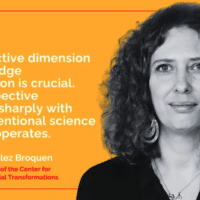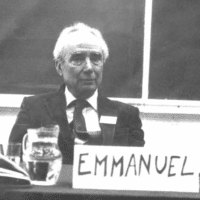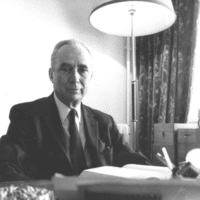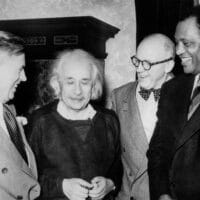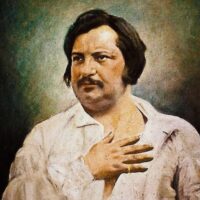-
Marx’s theory of value: Collapse, AI and Petro
A site called Marxism and Collapse (M&C) has conducted a ‘dialogue’ with an AI model called Genesis Zero (GZ) that includes “an expansion and refutation” of Marx’s theory of value. The human voice (M&C) asks questions and leads the AI model (GZ) into discussing the inadequacies of Marx’s value theory and to reach a new, […]
-
Surrealism as a revolutionary movement
Surrealism has been an international movement since its inception. However, here michael löwy focuses mainly on the Paris surrealist group, initially around André Breton, but which continued its activity after the death of the author of the Surrealist Manifestos.
-
Remembering Fredric Jameson, 1934-2024
In Fredric Jameson, who died on Sunday at the age of 90, we have lost probably the most creative Marxist thinker of our time.
-
When you suffer for your sanity and struggle to get free: The Thirty-Ninth Newsletter (2024)
The antidote to the mental health crisis lies in re-building our societies, moving away from capitalism’s culture of hostility towards a culture of connection and community.
-
Venezuela and the Ethics of Liberation: A conversation with Ximena González Broquen
The head of a prestigious research center talks about knowledge production in the Bolivarian Revolution.
-
Anura Dissanayake wins: A closer look at Sri Lanka’s first Communist president
The Marxist Janatha Vimukthi Peramuna (JVP) leader’s campaign was built on sweeping reforms, tackling corruption and ensuring economic relief.
-
Starmer’s embrace with Mussolini’s grandchildren
After meeting with Giorgia Meloni, Keir Starmer expressed admiration for the Italian prime minister’s plans to deport refugees to camps in Albania—signaling the Labour government’s willingness to embrace the policies of neofascism.
-
From 11 September to 7 October: The fake ‘War on Terror’ collapses
For years, the U.S. executed Israel’s regional destabilization program using phantom terrorists as justification for the ‘War on Terror.’ But 7 October 2023 killed Washington’s never-ending war project–with a flip of the switch, U.S. adversaries have now turned the ‘Long War’ on Israel.
-
Arghiri Emmanuel, the Free Republic of Congo, and socialism–not capitalism–first
Lumumba had seen hope in the African diaspora to invest what capital and skills it had in building the Congo. Arghiri Emmanuel made similar recommendations to Antoine Gizenga, Lumumba’s former deputy prime minister who led the rebel socialist Free Republic of Congo from December 12th 1960 to January 1962.
-
Arghiri Emmanuel, the law of unequal exchange, and the failures of liberation in the DR Congo
Writing about Arghiri Emmanuel’s Unequal Exchange, Jairus Banaji noted that it is “the closest Marxist counterpart I can think of to Fanon’s Wretched of the Earth”.
-
Culture, bread and revolution: A conversation with Natalia Molina
For the Caracas-based La Minka collective, culture and bread-baking go hand in hand with the project of making a socialist commune.
-
Lenin’s contributions to political economy
Vladimir Lenin made many valuable contributions to Marxist political economy.
-
Hegel on the Kant-Laplace hypothesis and the moral postulates
Hegel frequently practices self-censorship in his published texts, sometimes quite deliberately, sometimes unconsciously.
-
Science and Freedom: Toward a new revolutionary epistemology
Paul Robeson, speaking of the scientific achievements of the West which have formed the bedrock of its claim to supremacy, posed a question for the 20th century: “having found the key, has Western man—Western bourgeois man—sufficient strength left to turn it in the lock?”
-
‘Principles and Methods of a Marxist Kunstwissenschaft—Attempt at an Outline’
It is not easy to explain in such a limited space which philosophical, methodological, and practical features characterize the study of Kunstwissenschaft that arose from the insights won by Karl Marx and Friedrich Engels and were enriched by Vladimir Lenin, as well as many other scholars and revolutionaries.
-
The revolutionary dialectic of Balzac’s ‘Human Comedy’
Honoré de Balzac is renowned as a prolific literary genius and was one of Marx and Engels’ favourite authors.
-
Pioneers for Communism: Strive to be like Che
The French philosopher Jean-Paul Sartre once called Ernesto ‘Che’ Guevara the “most complete human being of our age.”
-
Alfredo Maneiro, reader of Machiavelli
VA columnist Reinaldo Iturriza explores Venezuelan political theorist Alfredo Maneiro’s concept of exercising political power with “revolutionary quality.”
-
Today’s Lenin
The Rosa Luxemburg Stiftung, based in Berlin, recently issued a bulletin entitled, “Seven Reasons Not to Leave Lenin to Our Enemies.” This was intriguing because Rosa was one of Lenin’s sternest critics, and during the Cold War era, her works found print in the United States as vindication of current U.S. policies against the Soviet Union.
-
Red Traces, Part 17: The golden age of Islamic science
Medieval Muslim thinkers ironically provided the intellectual foundations for the rise of the West, writes Sean Ledwith.



